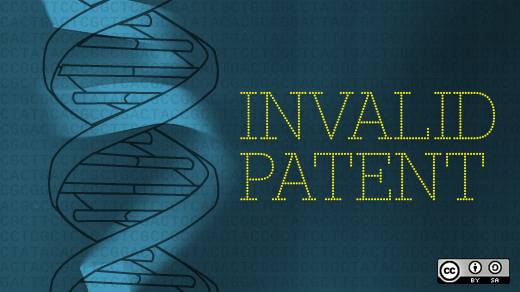Yesterday, the Supreme Court vacated Association for Molecular Pathology v. Myriad Genetics and remanded the case for further consideration in light of last week's Prometheus decision, which stated that the laws of nature are unpatentable. The Myriad case concerns the patentability of the BRCA1 and BRCA2 breast cancer genes.
Nearly two years ago, Eben Moglen wrote here about a breakthrough for those who oppose what he described as "socially harmful distortions of patent law." From that post in April 2010:
The Federal District Court for the Southern District of New York held invalid patents owned by Myriad Genetics on diagnostic testing for genetic susceptibility to the most common hereditary forms of breast and ovarian cancer. By "patenting" the right to determine whether the BRCA1 and BRCA2 genes are present in the relevant mutated form in a women's genome, Myriad Genetics has been able to exclude all other laboratories from conducting the test. Patients and their insurers have paid much more, and women and their families have waited crucial weeks longer than necessary for information relevant to treatment and potentially affecting survival.
Unfortunately, Myriad won their appeal in July 2011 in the United State Court of Appeals for the Federal Circuit, which declared that the company's claims for isolating DNA and cDNA of the BRCA1 and BRCA2 genes were patent-eligible. However, last week's Prometheus decision, in which it was stated the the laws of nature are not patentable, seems to point in the opposite direction. Now the Supreme Court has effectively told the Federal Circuit that they need to rethink the matter.
In that opinion, Justice Stephen Breyer wrote,"To put the matter more precisely, do the patent claims add enough to their statements of the correlations to allow the processes they describe to qualify as patent-eligible processes that apply natural law? We believe the answer to this question is no."
Women who test positive using Myriad Genetics' $3,000 test have an 82% higher risk for breast cancer and a 44% higher risk for ovarian cancer. Knowing whether she possesses these mutations could influence a woman's decisions for treatment, preventative mastectomies or oophorectomies, and approaches to other medical options. But the company's patents on the genes give it the exclusive ability to conduct the test.
A final decision in this case would affect many more people than just those at risk for breast cancer. Around 20% of human genes are patented, including those for many other illnesses, such as Alzheimer's disease, muscular dystrophy, and colon cancer.
After the 2011 reversal giving Myriad the right to the patents, Chris Hansen, a staff attorney with the ACLU Speech, Privacy and Technology Project, said, “Human DNA is not a manufactured invention, but a natural entity like air or water. To claim ownership of genetic information is to unnecessarily block the free exchange of ideas.”
“Nobody ‘invents’ genes, so no one should be able to claim ownership of them,” said Daniel B. Ravicher, executive director of the Public Patent Foundation (PUBPAT) and co-counsel in the lawsuit, following this week's Supreme Court order. “We are not talking about a new drug or a new tool to fight cancer. We are talking about a genetic marker that occurs naturally in the human body. That cannot, and should not, be patented.”







3 Comments